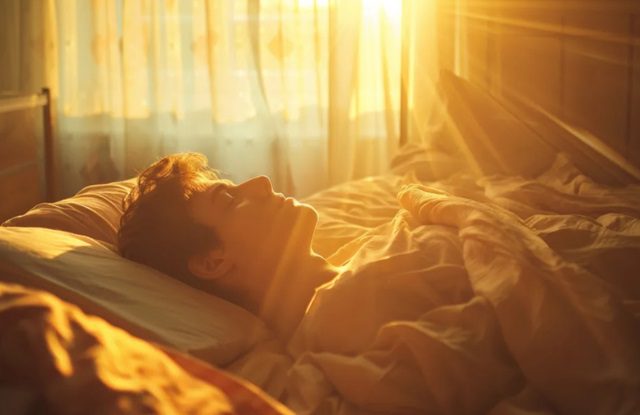BTN News: A new study from Brigham and Women’s Hospital, which is part of Harvard University, shows how important bright light and regular sleep are in lowering the risk of depression. This research looked at over 6,600 people. It found that those who spent more time in bright light had more regular sleep patterns. This regular sleep was linked to fewer depression symptoms and a lower chance of having mild or severe depression. These findings were shared this week in JAMA Network Open. They highlight how important regular sleep is for our health.
The study stresses the need for a steady sleep schedule. Co-author Susan Redline said, “Regular and steady sleep has big effects on our health. Future studies on bright light therapy should look at how sleep regularity affects mood and depression.”
The data for this study came from the National Health and Nutrition Examination Survey, which was done from 2011 to 2014. Researchers wanted to see if being in bright light, like daylight, was linked to depression symptoms. They also looked at whether a consistent sleep schedule explained this link. Bright light exposure and sleep regularity were measured using a device worn on the wrist.
Bright Light, Consistent Sleep, and Vitamin D Are Important in Fighting Depression
The study found that spending more time in bright light was linked to fewer depression symptoms. Regular sleep partly explained this connection. Higher levels of vitamin D were also linked to more bright light exposure and more regular sleep. However, vitamin D was not directly linked to fewer depression symptoms.
The authors noted that the study had limits because it used data from one point in time. This means they could not prove cause and effect. For example, depression symptoms might affect how much time people spend outside and in bright light.
Future Studies Should Follow People Over Time to Understand the Link Between Light, Sleep, and Mood
Future research should follow people over time to see how sleep regularity affects the link between light exposure and mood. This study was funded by the National Institutes of Health. It shows the need for long-term studies to confirm these results and understand how light, sleep, and mood are connected.
Conclusion
This study shows the big potential of bright light and regular sleep in reducing the risk of depression. While the findings are promising, more research is needed to confirm them and understand how they work. For now, getting enough natural light and keeping a regular sleep schedule could help improve mental health and well-being.


